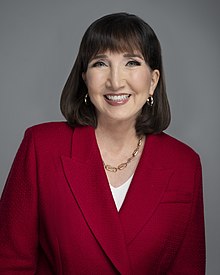Introduction
| Part of a series on |
| Libertarianism |
|---|
In the mid-19th century, libertarianism originated as a form of left-wing politics such as anti-authoritarian and anti-state socialists like anarchists, especially social anarchists, but more generally libertarian communists/Marxists and libertarian socialists. These libertarians sought to abolish capitalism and private ownership of the means of production, or else to restrict their purview or effects to usufruct property norms, in favor of common or cooperative ownership and management, viewing private property in the means of production as a barrier to freedom and liberty. While all libertarians support some level of individual rights, left-libertarians differ by supporting an egalitarian redistribution of natural resources. Left-libertarian ideologies include anarchist schools of thought, alongside many other anti-paternalist and New Left schools of thought centered around economic egalitarianism as well as geolibertarianism, green politics, market-oriented left-libertarianism and the Steiner–Vallentyne school. After the fall of the Soviet Union, libertarian socialism grew in popularity and influence as part of anti-war, anti-capitalist and anti- and alter-globalisation movements. (Full article...)
Selected article
Libertarian Marxism refers to a broad scope of economic and political philosophies that emphasize the anti-authoritarian aspects of Marxism. Early currents of libertarian Marxism, known as left communism, emerged in opposition to Marxism–Leninism and its derivatives, such as Stalinism and Maoism.
Libertarian Marxism is also often critical of reformist positions, such as those held by social democrats. Libertarian Marxist currents often draw from Karl Marx and Friedrich Engels' later works, specifically the Grundrisse and The Civil War in France, emphasizing the Marxist belief in the ability of the working class to forge its own destiny without the need for a revolutionary party or state to mediate or aid its liberation. Along with anarchism, libertarian Marxism is one of the main currents of libertarian socialism.
Libertarian Marxism includes such currents as council communism, De Leonism, Socialisme ou Barbarie, Lettrism/Situationism and workerism/autonomism and parts of the New Left. Libertarian Marxism has often had a strong influence on both post-left and social anarchists. Notable theorists of libertarian Marxism have included Anton Pannekoek, Raya Dunayevskaya, CLR James, E. P. Thompson, Rosa Luxemburg, Antonio Negri, Cornelius Castoriadis, Maurice Brinton, Guy Debord, Daniel Guérin, Fredy Perlman, Ernesto Screpanti and Raoul Vaneigem.
Selected quote
| “ | My idea of a perfect government is one guy who sits in a small room at a desk, and the only thing he's allowed to decide is who to nuke. The man is chosen based on some kind of IQ test, and maybe also a physical tournament, like a decathlon. And women are brought to him, maybe...when he desires them. | ” |
| — Ron Swanson (2009) Parks and Recreation (Season 1) |
Selected picture
 |
General images
Selected biography -
Jo Jorgensen (born May 1, 1957) is an American libertarian political activist and academic. Jorgensen was the Libertarian Party's nominee for president of the United States in the 2020 election, in which she finished third in the popular vote with about 1.9 million votes, 1.2% of the national total. She was previously the party's nominee for vice president in the 1996 election, as Harry Browne's running mate. She is a full-time lecturer of psychology at Clemson University. (Full article...)
Related portals
Parent portals
Socio-political portals
Topics
Categories
Points of interest
| Points of interest related to Libertarianism on Wikipedia: History – Portal – Category – WikiProject – Alerts – Deletions – Assessment |
Associated Wikimedia
The following Wikimedia Foundation sister projects provide more on this subject:
-
Commons
Free media repository -
Wikibooks
Free textbooks and manuals -
Wikidata
Free knowledge base -
Wikinews
Free-content news -
Wikiquote
Collection of quotations -
Wikisource
Free-content library -
Wikiversity
Free learning tools -
Wiktionary
Dictionary and thesaurus



































